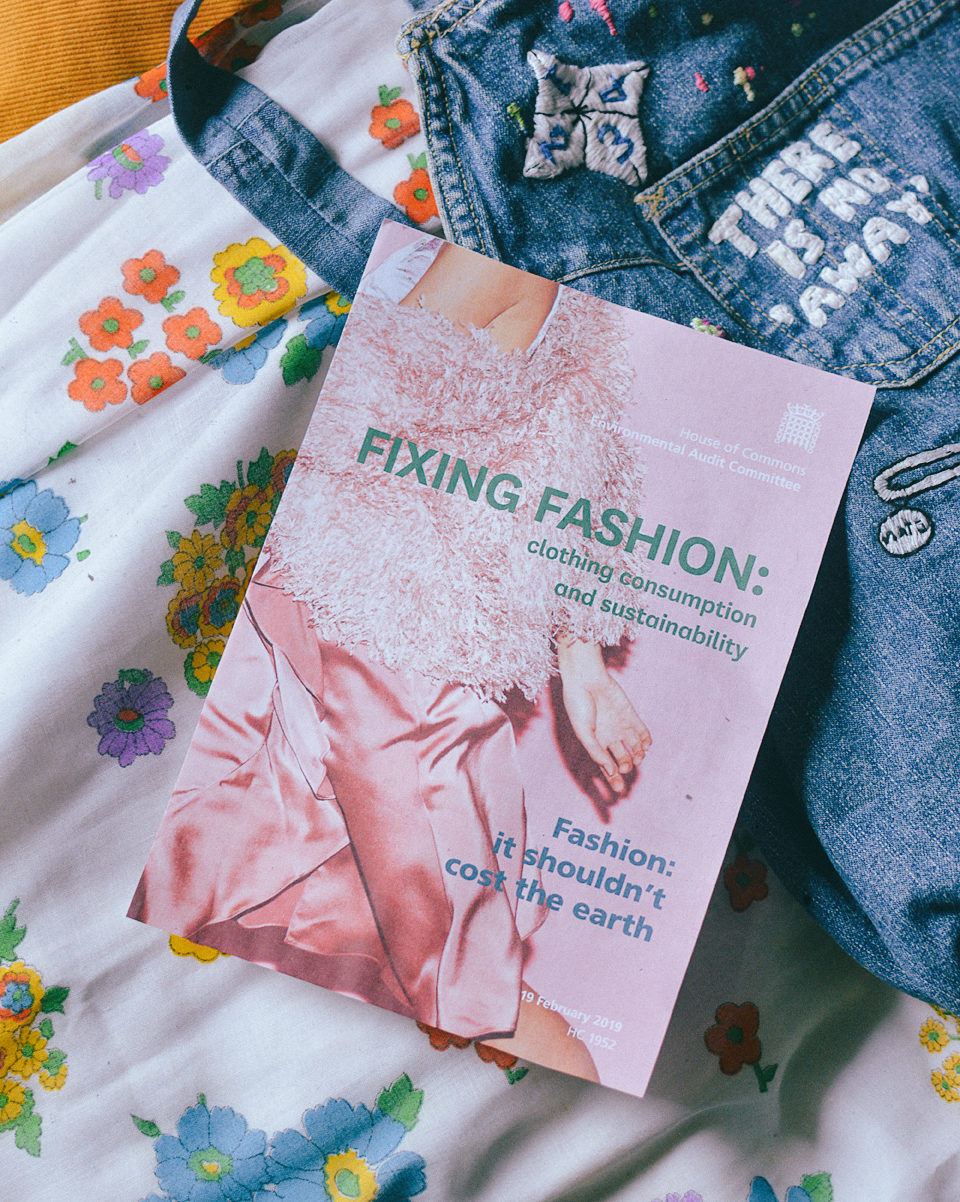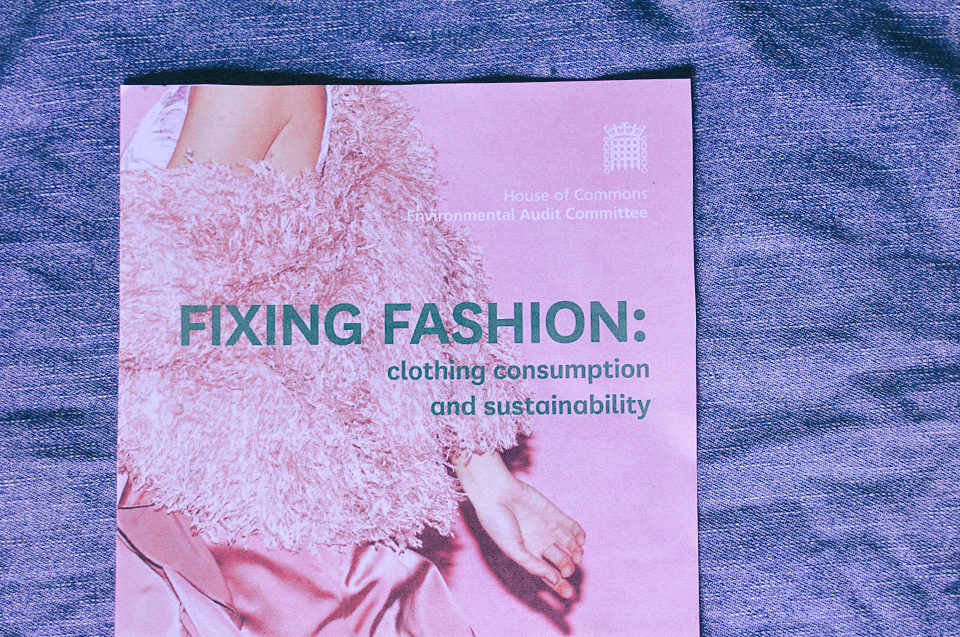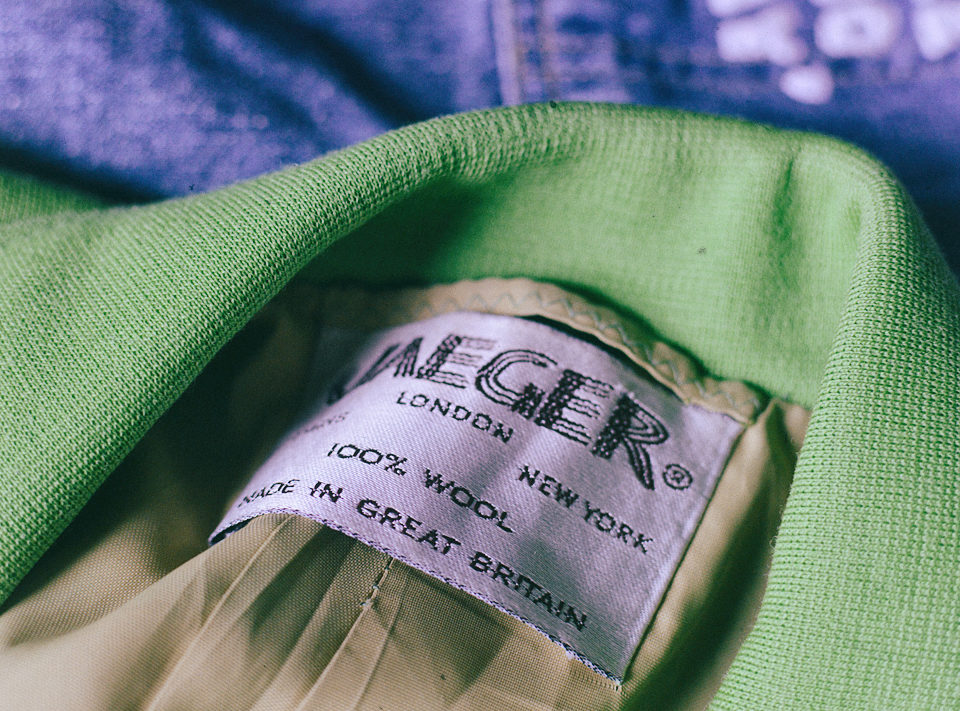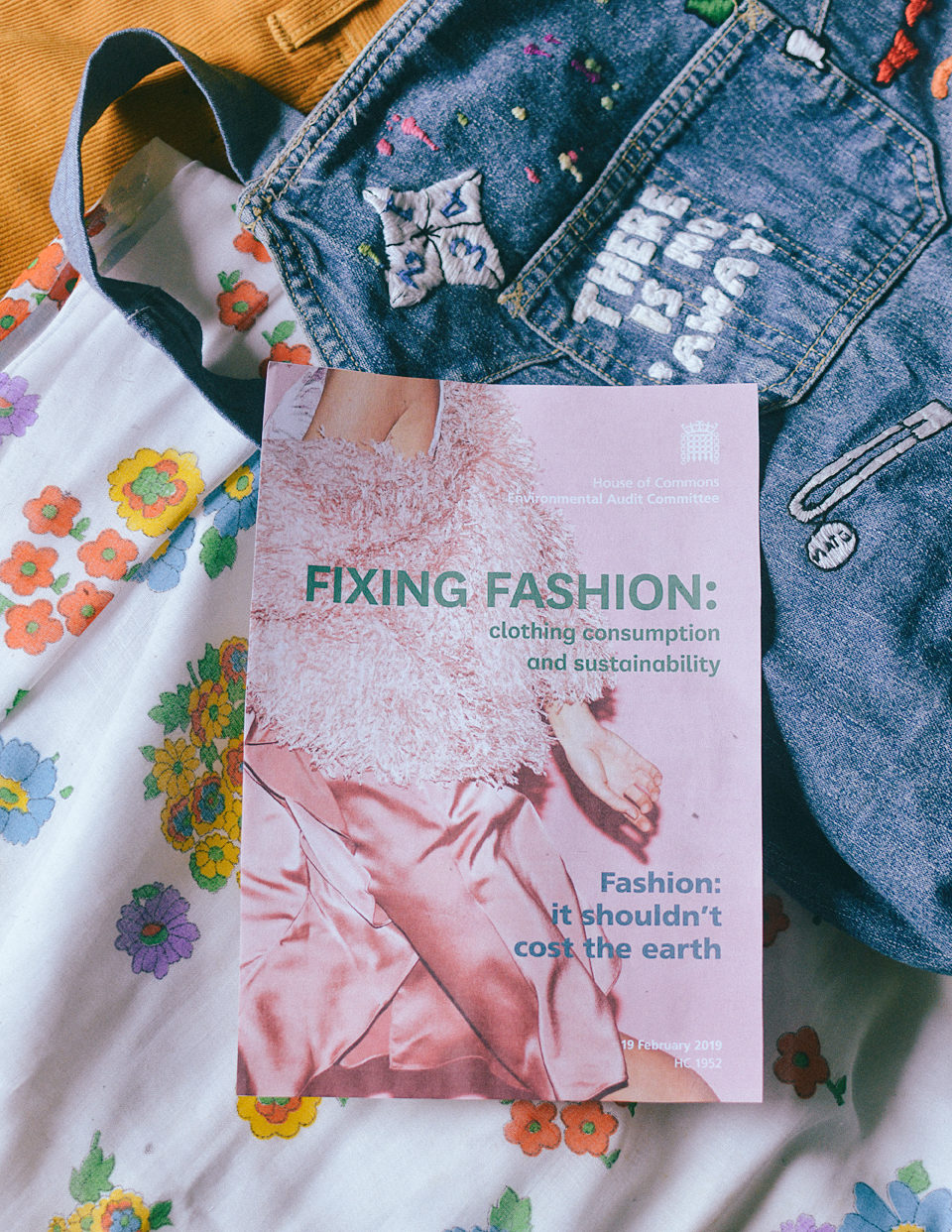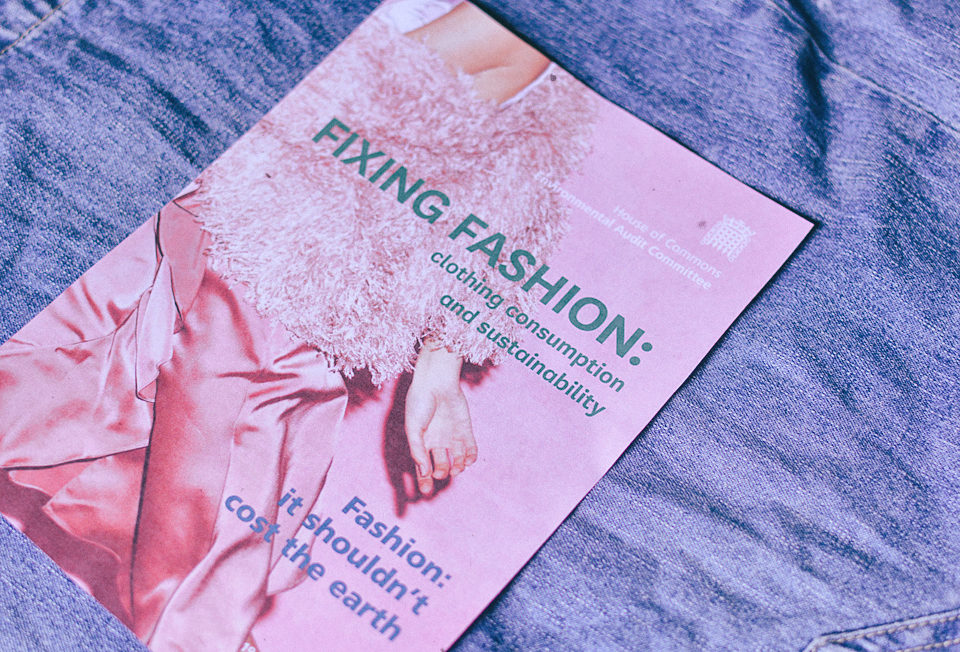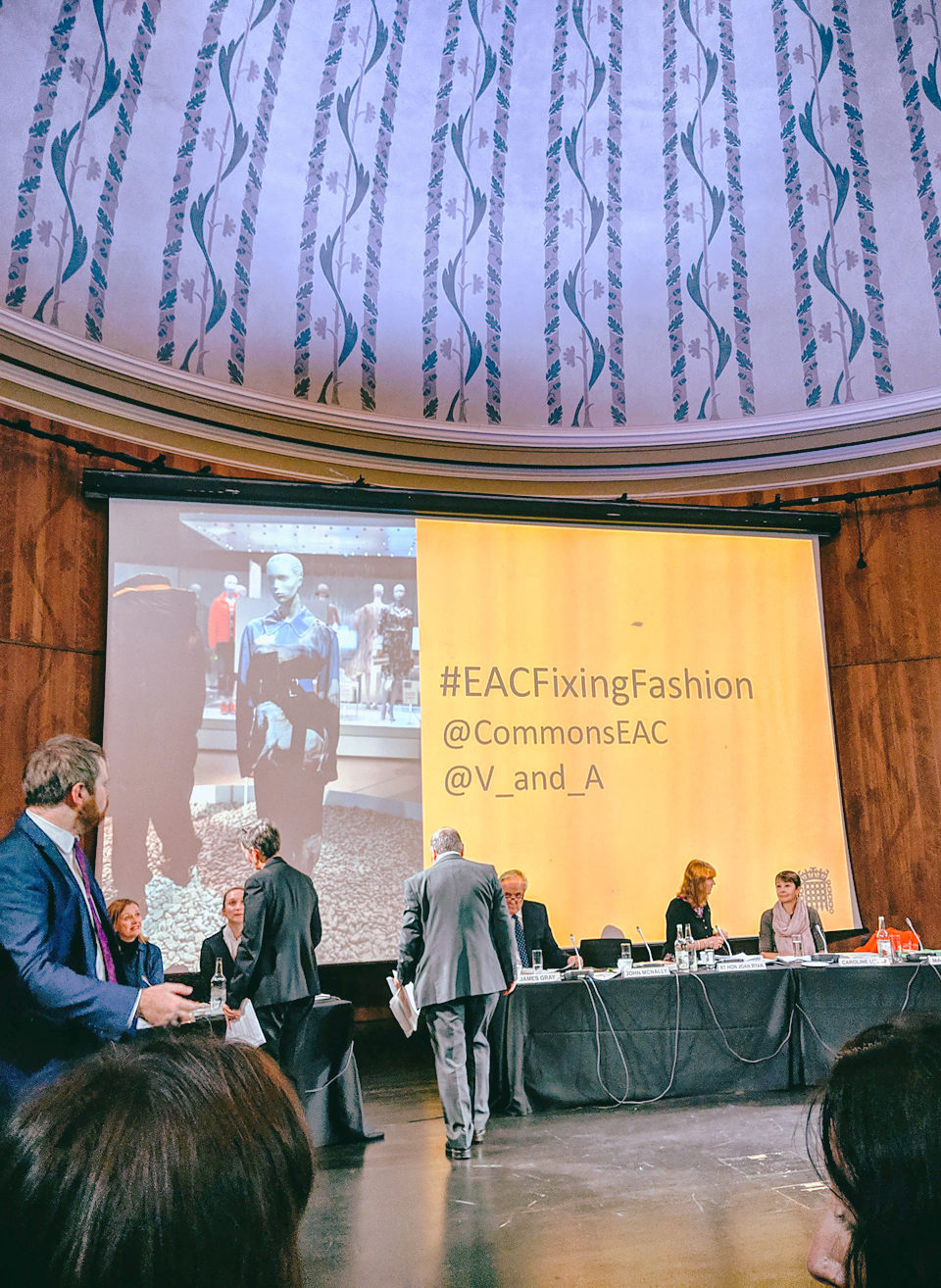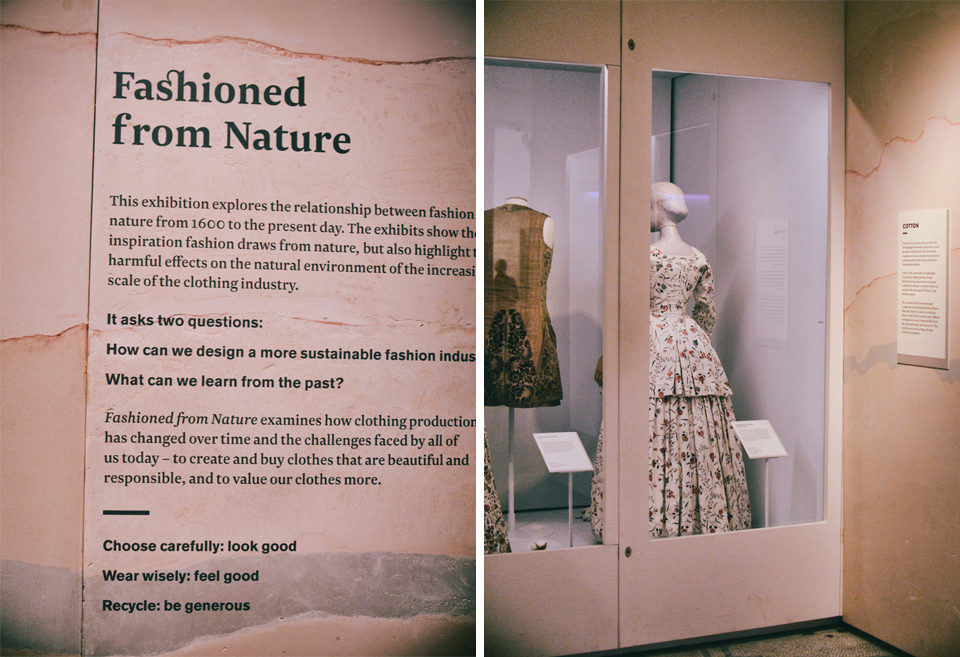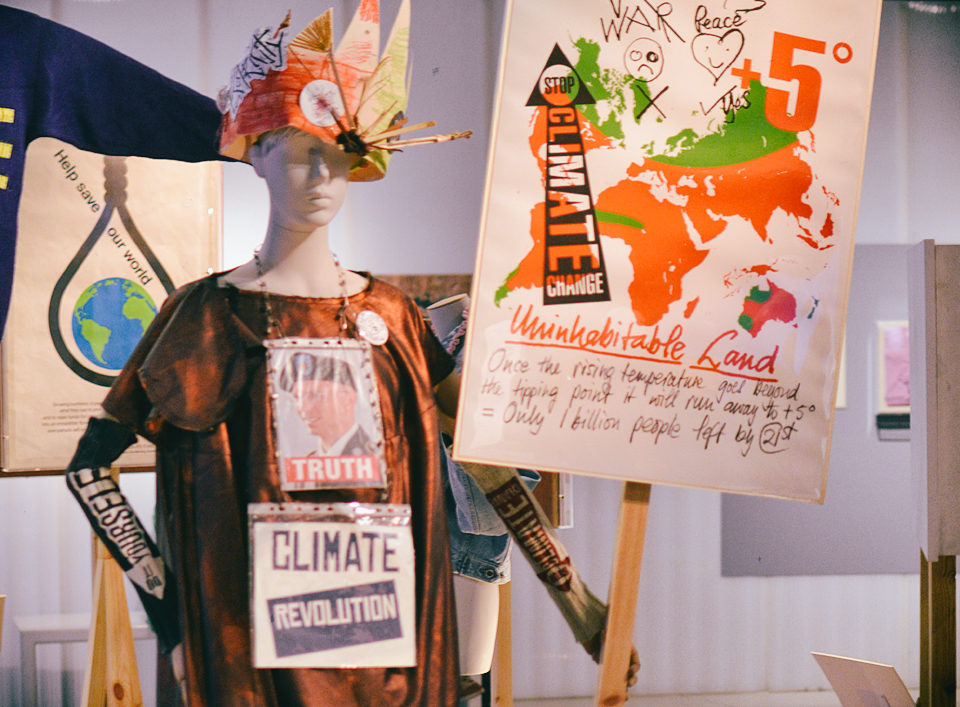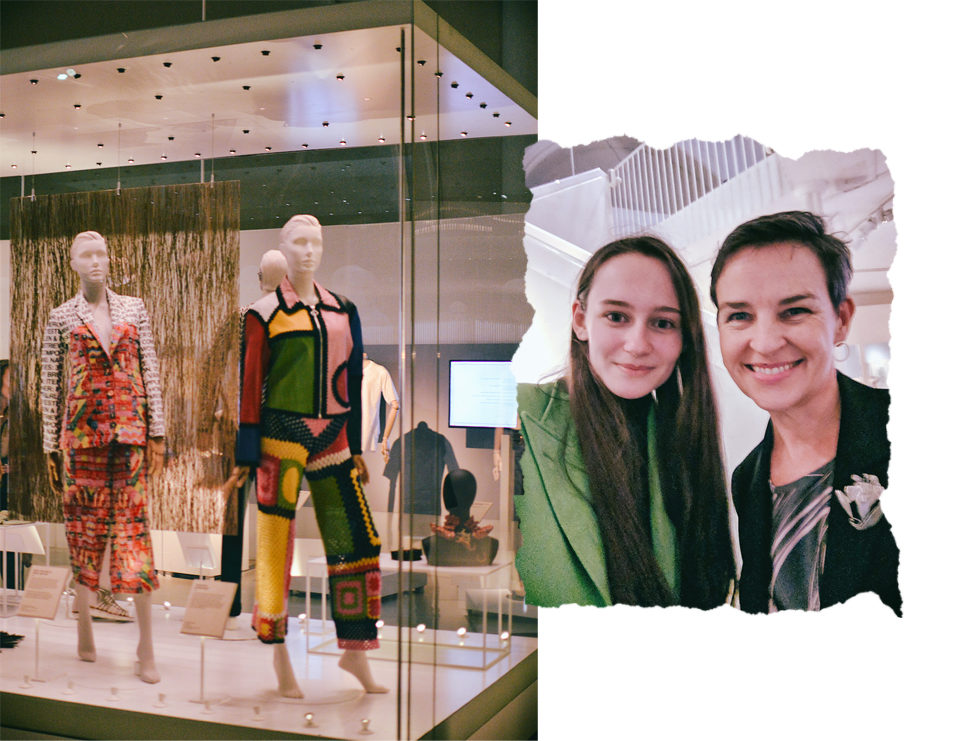This is my third piece dedicated to focusing on the UK Parliament’s inquiry into the sustainability of the fashion industry. This piece focuses on how the Government has responded to the final report, put forward in February 2019. You can read my initial piece and interview with Mary Creagh MP here, and the second follow-up, here.
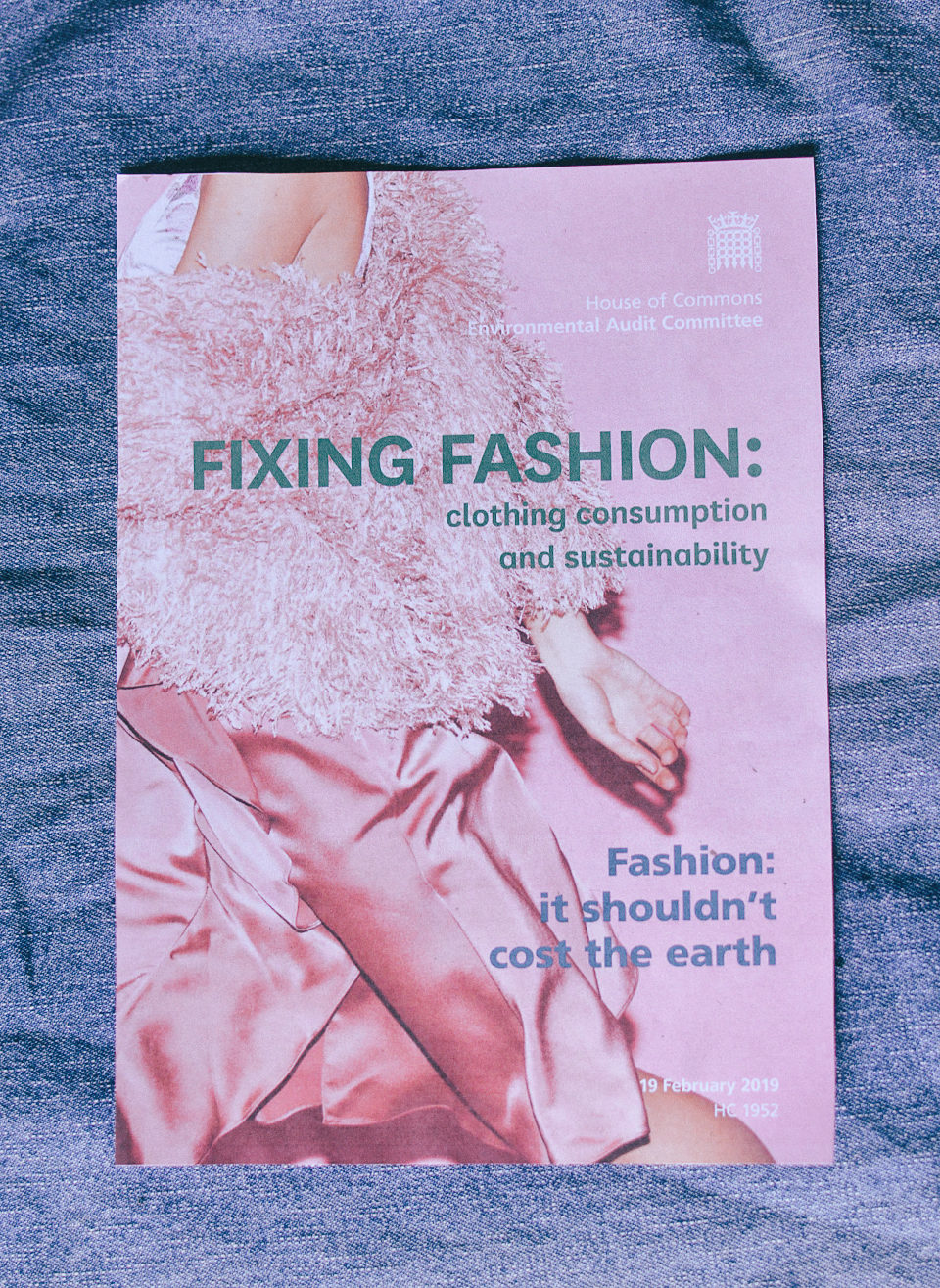
The Government’s response to the Fixing Fashion report can be read in full, here.
On May 1st 2019, UK Parliament approved a motion to declare a climate emergency. Now, not long after, we have a response from the Government when it comes to the fashion industry’s crucial role in it. This response clarifies the Government’s position on different key recommendations from the Environmental Audit Committee, including those of which I covered in my most recent post covering the inquiry.
In line with my opinions in that post, I’m going to run through each response from the Government and explain what is actually being done to make the fashion industry more sustainable in the UK.
However, it’s important to note (not only with fashion-based climate-related issues), that in the UK, we export a huge amount of our manufacturing overseas. This means that our contribution to pollution, carbon emissions and social issues can often look like they are reduced (or are reducing) due to the fact that statistics and numbers, often refer to those contributions made solely in the UK, rather than what we contribute to elsewhere, globally.
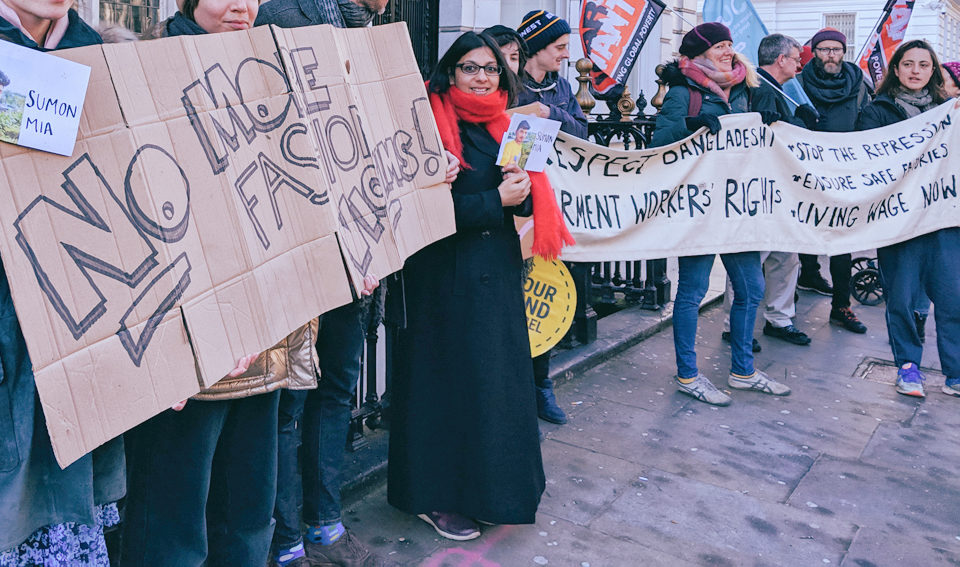
Protest in support of the Bangladesh Accord, January 2019
Made in the UK should mean workers are being paid fairly…
Work in progress.
In response to evidence suggesting that garment workers based in the UK directly are not receiving the National Minimum Wage, the Government states that with increased budgets, more is being done to ensure the minimum wage is being enforced, and that it’s recommended that textile retailers sign up to the likes of the Global Framework Agreement.
The Global Framework Agreement is in place to protect the interests of workers across multinational companies, ensuring the best standards of ‘trade union rights, health, safety and environmental practices, and quality of work principles across a company’s global operations’.
![]()
Retailers failing to report and comply with the Modern Slavery Act should be faced with a penalty…
No recommendations adopted.
In the response, it’s said that the Transparency in Supply Chains (TISC) provision in the Modern Slavery Act has led to thousands of businesses publishing statements in regards to how they are addressing slavery in their global supply chains.
The Government “agrees that greater transparency is essential to tackle modern slavery” and that they are “committed to improving business compliance with the Act”, however, this recommendation will not be adopted.
![]()
The Government should ban incinerating or landfilling unsold stock that can be reused or recycled…
Recommendation rejected.
Although the Government agrees that recycling and reusing unsold stock should be prioritised, it doesn’t believe that placing a ban on incineration or landfill is the way to move forward, despite the financial and environmental impacts and the imbalanced proportion of energy produced when unsold stock is incinerated.
In my own personal opinion, I am unsure as to why this has been rejected and isn’t being explored further. The Government say they want to focus on ‘positive approaches’ yet I see nothing negative in this recommended ban.
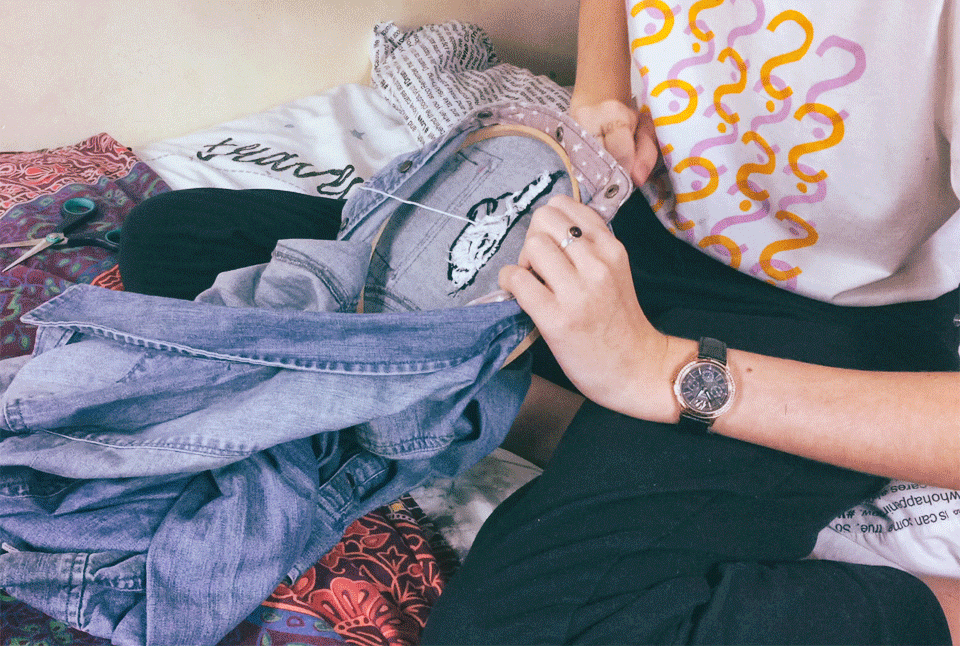
GIF originally featured in a post about embroidery for #MAKESMTHNG Week
Lessons on designing, creating, mending and repairing clothes should be taught in schools…
There is scope.
This section of the Government’s response focuses on the current curriculum and how there is already room for these topics to be approached within schools, whether it be in Key Stage 3 (age 11-14) geography that “covers how human and physical processes interact to influence and change landscapes, environments and the climate” or whether it be in the design and technology curriculum.
![]()
An Extended Producer Responsibility scheme for companies that take positive action to reduce waste, should be introduced…
Not accepted.
Under the Resources and Waste Strategy, which aims to set out how we preserve natural resources by reducing waste and moving towards a more circular economy, a commitment has been made to review and consult on “measures such as EPR [Extended Producer Responsibility] and product standards for five new waste streams by 2025, with two these to be completed by 2022″.
With the UK announcing a commitment to reducing emissions to net-zero by 2050, it’s concerning to me that approaching the issue of waste and overproduction could take us into 2025, with what seems to be little urgency.
![]()
The Government should reduce VAT on repair services…
Not accepted.
Although in other responses it’s been suggested that the focus should be on reuse and recycling, when it comes to repairs, reducing VAT on repair services is unlikely to happen, due to the fact that VAT funds the Government’s spending on priorities such as education, health and defence. The Government claims that not enough evidence has been found that supports Sweden being used as a prime example in the original inquiry.
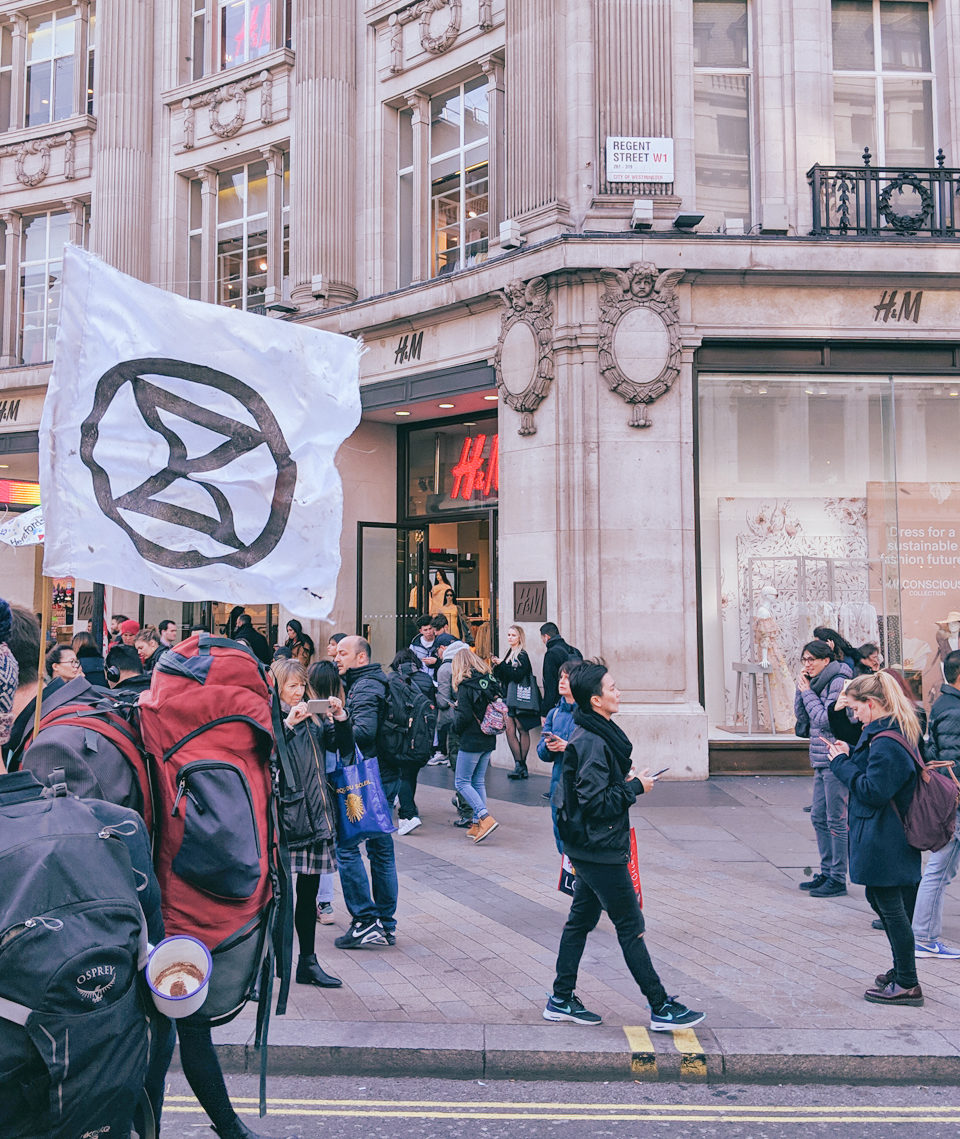
Extinction Rebellion at Oxford Circus, London, in April 2019.
Other thoughts…
Some of the language used and statements made within the response were in some ways, rather contradictory. Although the Government “recognise how crucial it is for the environmental and social impacts [of the fashion industry] to be well managed, particularly in this era of fast fashion”, in the next breath, it also suggests that “the industry has the primary role to play in achieving change, helped by consumer behaviour”, almost entirely ignoring the fact that fast-fashion is a double-edged sword when it comes to consumption.
Yes, the industry thrives off our demand for more and how we vote with our money but that demand is only maintained by the fast-fashion industry’s role in the normalisation of over-consumption. Within the inquiry, fast-fashion brands openly disclosed the selling of ‘loss leaders’ (products which are sold simply for the sake of driving site traffic and which are produced at a loss for the company). Just look at one controversial example in recent times, with Missguided selling a £1 bikini made from synthetic materials.
This addictive nature to fast-fashion will only ever be strictly controlled if regulations (or penalties) are in place to slow down that consumer demand that we’ve become so accustomed to.
![]()
Along this same vein of brand responsibility, the Government praises retailers for “offering in-store take-back and resale clothing collection services”, despite the fact that many of these in-store take-back services are often incentivised with vouchers that once again, keep consumers in a loop of consumption.
I don’t want to have to point it out but there seems to be one common theme here – money.
The only positive that I can find related to consumer behaviour, is the suggestion of a ‘domestic ecolabel scheme’ that the Government seeks to develop, enabling consumers to be provided with better information when shopping.
In summation, I am disappointed in the Government’s response to the inquiry as I do not believe it aligns itself to the targets which we need to be reaching in order to face the climate crisis head-on or the weight of responsibility that is on us as a country when it comes to fashion as a global industry, whether that be environmentally or socially.
What do you think of the Government’s response (or lack of)? Let me know in the comments…







